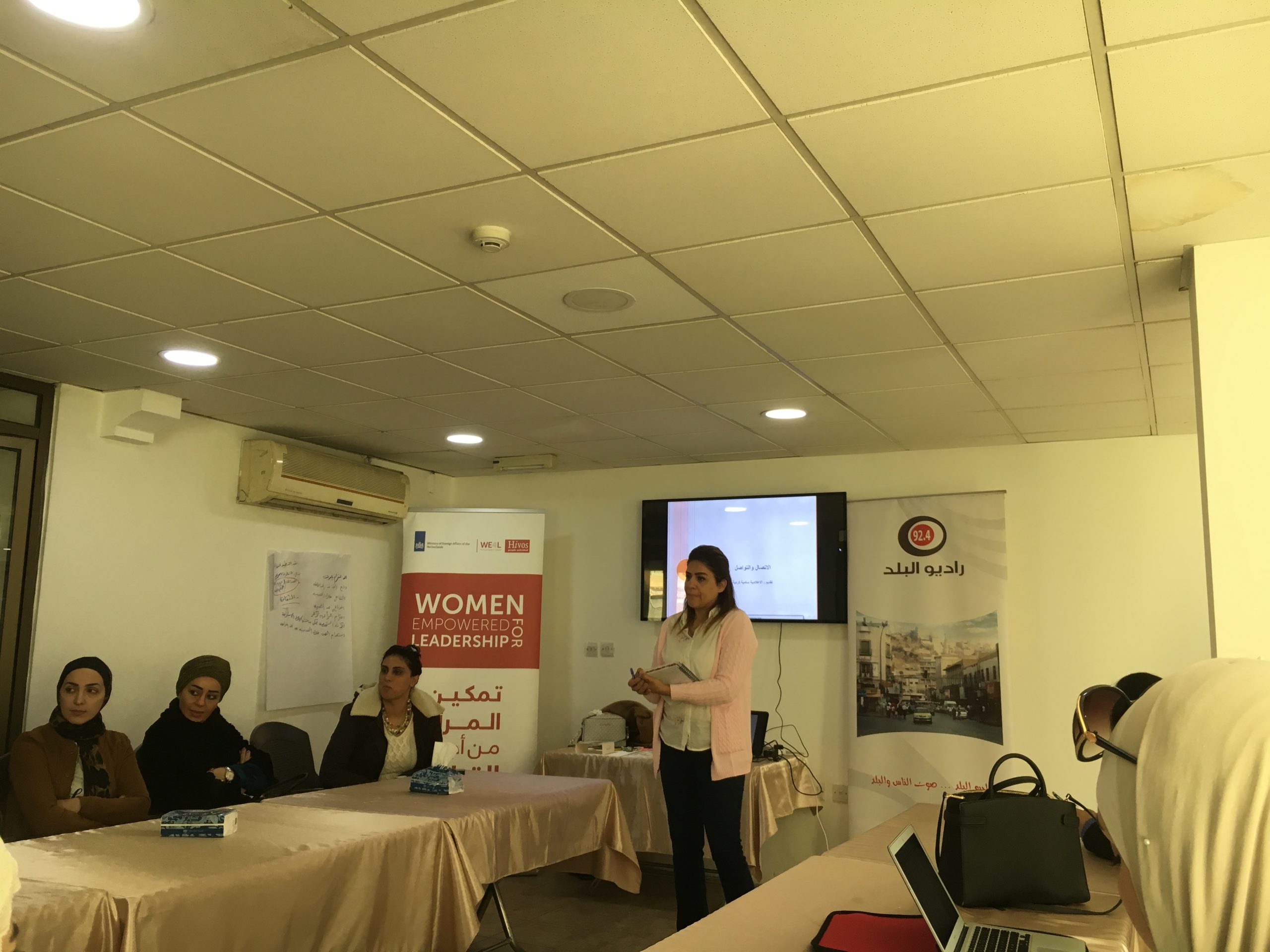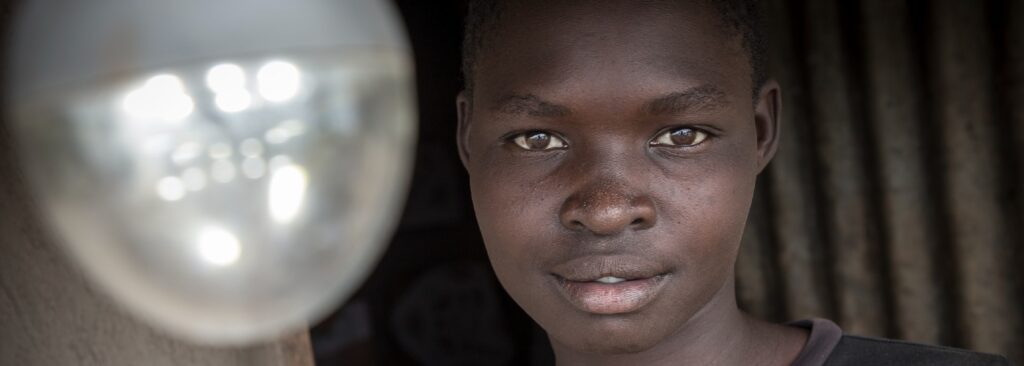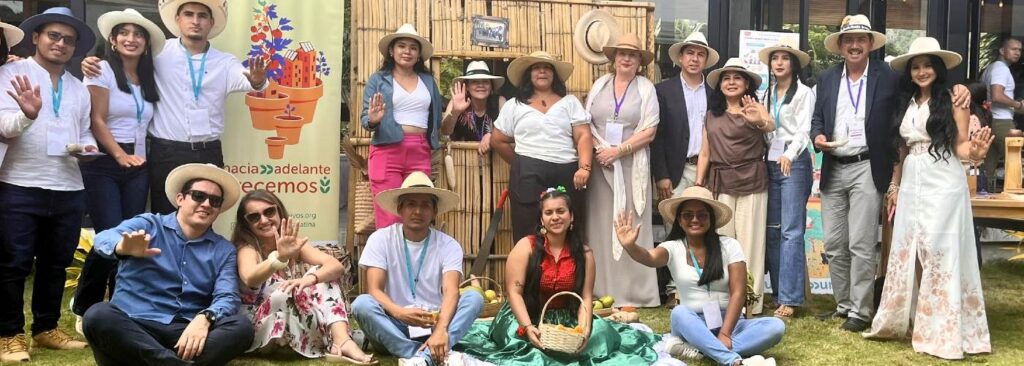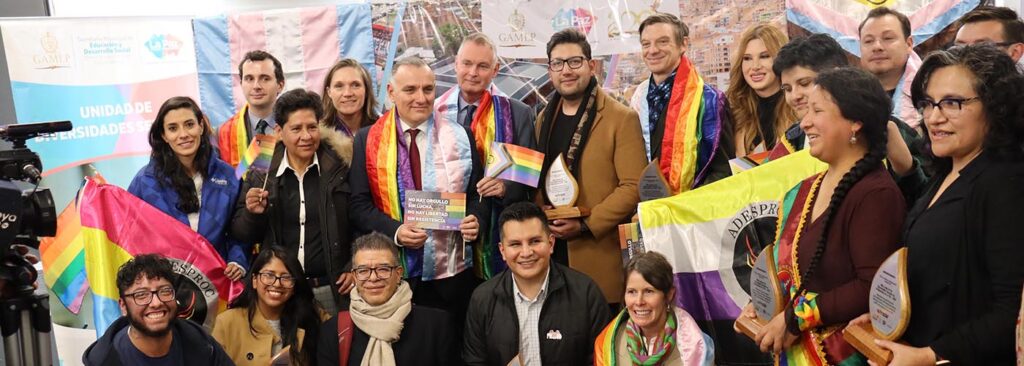id=”809″ id=”post-2407″ class=”wp-post-content-block ” itemscope itemtype=”http://schema.org/BlogPosting” itemprop=”blogPost”>
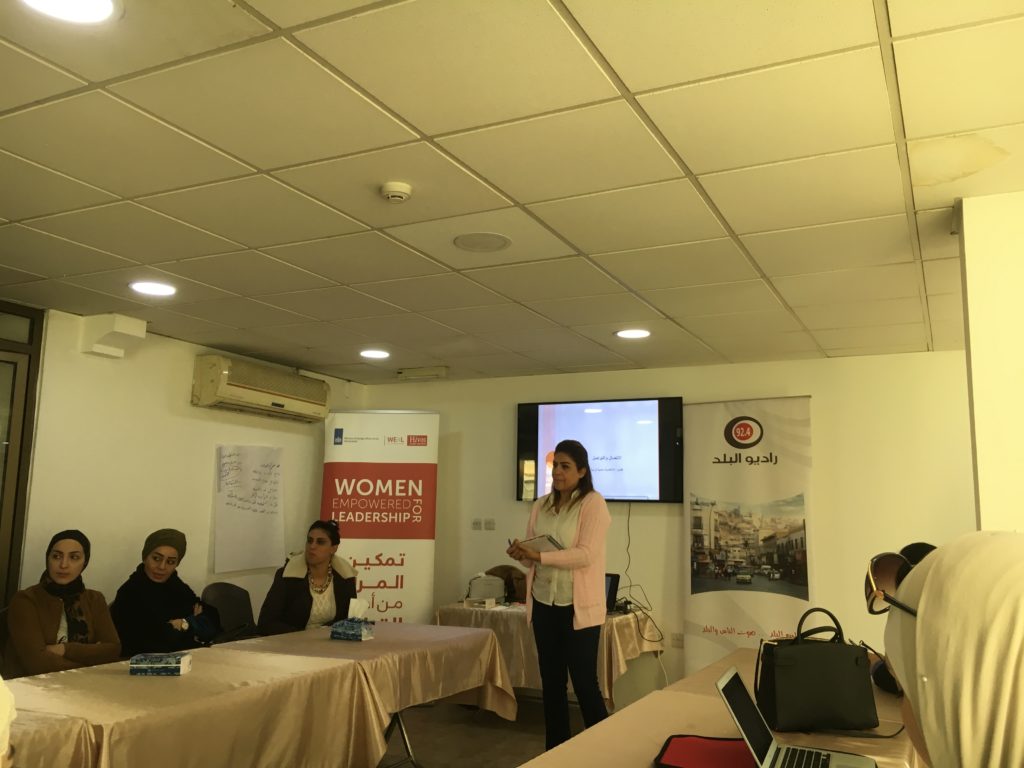
Training to increase women leaders’ participation in media outlets in Jordan
By: Shara Jazzar
Stemming from its strong conviction in the necessity of empowering women’s communication skills in order to enable them to have a stronger impact in the public and political life, Hivos, in cooperation with the Community Media Network (CMN) and with the support of the Dutch MFA, implemented the Jordanian Women Experts project, which aims at enhancing women’s presence in the Jordanian media. Such projects are particularly important in Jordan as women are rarely hosted to speak on topic that are considered ‘male expertise’ due to gender stereotypes.
About the Jordanian Women Experts project
The Jordanian Women Experts project was implemented in 3 Jordanian governorates, covering a number of experts in different fields. The goal was to train these women on enhancing their communication skills – such as dealing with written and audio-visual media, understanding the importance of women’s presence on social media, presenting themselves to the media and sitting for an interview – while encouraging them to create their own content, as opposed to acting as mere receptors. Additionally, the workshop increased participants’ legal awareness that would enable them to know how to properly use the media, as there is a number of basic things related to copyrights and local legislations that must be taken into consideration. Also, one of the project’s main outcomes is to increase Jordanian women’s presence in the local media through creating an electronic guide that includes their names as experts in specific fields, which will be presented to media institutions and will be relied upon when inviting specialists to talk shows or on the news. By encouraging the media to invite women experts, this will ensure that women, not only men, are sharing their expertise and insight on all sorts of scientific, political, legal, medical and other ‘male’ topics, as opposed to the traditional subjects reserved to them such as pregnancy, children’s education, beauty, fashion or cooking.
Impact on participants
Tahani, a Training Specialist, says the workshop “taught her how to properly use the media in order to share her message.” Additionally, she gained a number of skills such as what to focus on during an interview. She is planning to share her knowledge with her colleagues at work, in order to be able to change gender stereotyping in the Jordanian society through enabling more women to speak to the public.
As for Aisha, a specialist in Family and Social Protection, the workshop taught her “what to focus on while speaking on the media, depending on its type and the time available,” as there is a difference between a one-minute intervention during the news, and a full-fledged interview of 30 minutes.
In parallel, Dr Khawla, Criminologist, was given the opportunity “to analyze the common mistakes people make while speaking for the media, in order to avoid them.” Furthermore, she became more confident in dealing with the media and learnt how to better manage her time and what she has to say to ensure that her message is delivered complete. As a female criminologist, Dr Khawla has entered what is commonly seen as a male domain in Jordan. Furthermore, she has a different perspective of crime than her male counterparts. To her, women can be worse criminals than men, and this is a topic worth investigating. That’s why her views would be interesting to hear.
Ultimate outcome
By providing Jordanian women experts with this workshop, Hivos enabled them to have strong and effective communication skills that would support them in spreading their knowledge to the public. By getting to know one another and on account of their different backgrounds, these women might find it beneficial to collaborate to impact political and societal development and opinions in Jordan, especially in the light of the upcoming parliamentary elections in the country.
Furthermore, by hosting women on the media, Jordanians will become gradually accustomed to seeing or hearing women experts discussing topics that are usually considered a male domain, such as criminology, energy, security and others. Bit by bit, these women will be capable of changing gender stereotypes and increasing the acceptance of females in leadership positions. Furthermore, women’s media participation will no longer be limited to social and family shows, while being excluded from political and economic ones.

